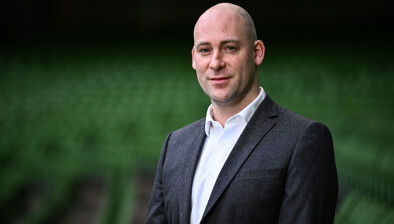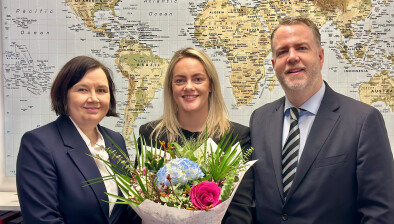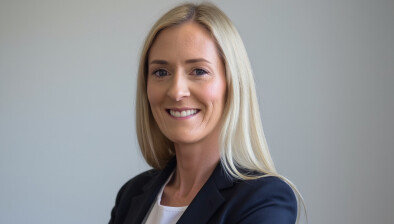High Court: Personal injury proceedings stayed until plaintiff examined by defendant’s second orthopaedic surgeon

The High Court has stayed personal injury proceedings until the plaintiff submits to examination by a further expert orthopaedic surgeon retained by the defendant despite opposition on the basis of “expert-shopping”.

About this case:
- Citation:[2024] IEHC 33
- Judgment:
- Court:High Court
- Judge:Mr Justice David Holland
Delivering judgment for the High Court, Mr Justice David Holland stated that “there is no definition of, or black letter rule in terms against, expert-shopping. The parties were unable to cite any Irish cases explicitly addressing the phrase… While it is to be deprecated, questions of degree arise. There is no rule that a party, plaintiff or defendant, in investigating a case is bound irrevocably by the opinion of the first expert consulted. Litigation is adversarial and, within bounds, legitimately tactical.”
Background
On 25 August 2018, the plaintiff fell and suffered a fractured ankle. The defendant council admitted liability for the fall.
The plaintiff also claimed that he developed chronic regional pain syndrome (CRPS) and an issue arose as to whether this was caused by his fall. The plaintiff’s experts made the diagnosis of CRPS and attributed it to his fall, leading to a considerable claim for past and future care.
Dr MacSullivan, an anaesthetist and pain management expert, examined the plaintiff for the defendant and reported in May 2022 that she saw no signs of CRPS. Mr Mulcahy, an orthopaedic surgeon, also examined the plaintiff for the defendant and in his July 2023 report he did find evidence that the plaintiff was suffering from CRPS.
The defendant contended that without the claim of CRPS, the plaintiff’s claim for care would fall away, but given the conflicting views of its experts and its need to rely on the evidence of both experts, it wished to have another orthopaedic surgeon, Professor Harty, examine the plaintiff and to create a report.
The defendant applied to the court to stay the plaintiff’s proceedings pending the evaluation of the plaintiff by Professor Harty.
The High Court
Mr Justice Holland noted that counsel for both sides were happy to leave the question of whether the defendant would be entitled to call expert witnesses to give conflicting evidence, “given that the premise of tendering evidence is that the court is invited to accept it as truthful, accurate and worthy of acceptance. That is the reason, for example, why ordinarily one may not cross-examine one’s own witness.”
Mr Justice Holland observed that there was no direct authority as to whether a defendant is entitled to obtain a second opinion from a certain medical specialty and whether the plaintiff was obliged to submit himself to examination by that second expert, but recognised that the test is one concerned with fairness and the interests of justice having regard to all the circumstances.
The court supported the defendant’s submission that the plaintiff was confusing the prohibition on calling more than one expert of a given specialty under Order 39, Rule 58(3) of the Rules of the Superior Courts 1986 with the process of disclosure of reports and the question of whether a party is entitled to retain multiple experts of a certain specialty before deciding which (if any) of them to call as a witness.
The judge stated: “There is no reason, for example, why a defendant should not retain multiple engineers to inspect a locus of an accident and decide ultimately which of them if any to call as a witness. Indeed, the defendant makes a reasonable point that, as a plaintiff is not dependent upon the defendant’s cooperation in that regard, a plaintiff can bespeak reports from various doctors — even of the same specialty — before deciding which of them to disclose and thereafter to call as witnesses.”
Agreeing with the defendant’s reliance on Defender Limited v HSBC Institutional Trust Services (Ireland) Ltd. [2018] IEHC 543 in which Twomey J. accepted that the “one-expert rule” deals with the admission of evidence and not the delivery of expert reports, the court emphasised: “What makes the position as to doctors… different is that the defendant’s examination is dependent upon the plaintiff’s cooperation, so the plaintiff is in a position to object. A plaintiff…waives certain of his or her rights of privacy as to his or her medical condition… That waiver is however, limited by the scope of the reasonable requirements of the defendant. What is reasonable depends on all the circumstances assessed in the context of the defendants’ constitutional rights as to its conduct of the litigation.”
Noting the plaintiff’s contention that the defendant’s motion was designed to permit “expert-shopping”, Mr Justice Holland stated that:
“there is no definition of, or black letter rule in terms against, expert-shopping. The parties were unable to cite any Irish cases explicitly addressing the phrase… While it is to be deprecated, questions of degree arise. There is no rule that a party, plaintiff or defendant, in investigating a case is bound irrevocably by the opinion of the first expert consulted. Litigation is adversarial and, within bounds, legitimately tactical. To say that a proposed course of action is driven only by tactical considerations is not to say, necessarily, that it is forbidden.”
The court determined that the significant increase in special damages could not affect the diagnosis of CRPS, it increased the importance of that diagnosis being correct and could render investigations to verify the diagnosis proportionate. Finding that a further examination would impose “little, if any, additional burden” on the plaintiff in circumstances where he would likely have to submit to an updated orthopaedic examination before the trial anyway, Mr Justice Holland did not think that “anything turns on the identity of the examining orthopaedic surgeon”.
The court continued: “As matters stand on the expert reports available to it, the defendant, at least tactically and arguably as a matter of law, is put in the position of having to decide whether to dispute the CRPS or the orthopaedic situation despite having discrete expert opinions entitling it to dispute both. That may be the position in which it ultimately finds itself — depending on the view taken by Professor Harty. But, perfect justice being impossible…on balance and in the interests of justice, and whether or not one calls it expert-shopping, I do not think it is unreasonable or unfair to ask the Plaintiff to submit to examination by one additional expert — Professor Harty.”
Adopting O’Farrell J in Avantage (Cheshire) Ltd and others v GB Building Solutions [2023] EWHC 802 in finding that Mr Mulcahy’s contribution should be available to all parties, Mr Justice Holland considered that any unfairness arising from a stay on the proceedings would be mitigated by the defendant’s waiver of privilege over Mr Mulcahy’s report if he is withdrawn as a witness.
Conclusion
Accordingly, the court stayed the proceedings pending the examination of the plaintiff by Professor Harty.
O’Donovan v. Cork County Council [2024] IEHC 33











